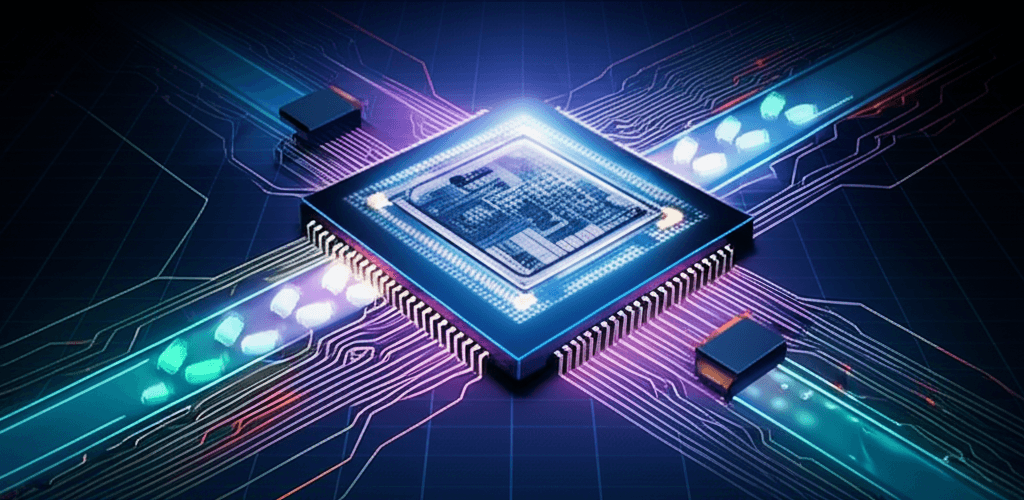US Sanctions Fail: Billion-Dollar NVIDIA AI Chips Flood China
Billion-dollar black market funnels NVIDIA's top AI chips to China, defying U.S. controls and accelerating an AI arms race.
July 24, 2025

A sprawling and sophisticated black market has funneled at least $1 billion worth of high-end NVIDIA graphics processing units (GPUs) into China, circumventing stringent U.S. export controls designed to stifle the nation's technological advancement. This underground trade, which includes some of NVIDIA's most powerful and recently released chips, underscores the profound challenges in enforcing technology sanctions and carries significant implications for the global artificial intelligence arms race. At the heart of the illicit trade are NVIDIA's advanced AI chips, including the highly sought-after Blackwell B200 and the preceding Hopper generation GPUs like the H100 and H200.[1][2] These components are critical for developing and training large-scale AI models, powering everything from generative AI applications to advanced military and surveillance technologies.[1][3] Despite a direct prohibition on their sale to China, these chips are reportedly widely available in the country's black market, a testament to the persistent demand from Chinese tech firms and research institutions.[2][3]
The smuggling operations are multifaceted, employing a complex network of brokers, resellers, and couriers.[1][4] These networks exploit loopholes by routing shipments through third-party countries and resellers in regions like Southeast Asia, including Malaysia, Vietnam, and Taiwan.[1][3] Chips are often purchased legally from authorized suppliers in these regions before being illicitly rerouted to Chinese buyers at inflated prices.[1] One transaction highlighted the scale of these operations, involving a $3 million deposit for an order of more than a dozen Blackwell servers, each containing eight AI processors, for a Shanghai-based client.[1] To evade detection, smugglers use a variety of deceptive tactics, such as registering fake overseas companies to legally purchase servers, falsifying serial numbers on restricted chips, and using human couriers for smaller quantities.[1][5] In some instances, chips have been concealed in shipments labeled as tea or toys, and even hidden in prosthetic baby bumps or alongside live lobsters.[6][7][8]
The foundation for this thriving black market was laid by a series of U.S. export controls initiated under the Biden administration in October 2022 and later expanded.[9][10] These regulations were designed to protect U.S. national security by preventing China's military and surveillance agencies from accessing cutting-edge American technology.[10][3] The rules established performance thresholds that effectively banned the export of high-performance GPUs like NVIDIA’s A100 and H100 to China.[9][8] In response, NVIDIA developed modified, less powerful versions of its chips, such as the H20, specifically for the Chinese market to comply with these regulations.[9][11] However, the flow of the most advanced, non-compliant chips has continued unabated through illegal channels. The situation is further complicated by shifting trade policies. The Trump administration, after initially tightening restrictions, later approved the sale of the compliant H20 chip, a decision influenced by trade negotiations involving rare earth minerals.[9][10][12]
The persistent influx of smuggled high-end GPUs into China has profound implications for the global AI landscape, potentially undermining the strategic goals of U.S. export controls. The availability of these powerful chips allows Chinese companies and research institutions to continue developing sophisticated AI models, narrowing the technological gap with the West.[6][3] Notably, some of China's most prominent cloud providers, including AliCloud and Baidu Cloud, were reportedly among the partners of a Chinese company dealing in the smuggled B200 systems.[2] The servers containing these chips often originate from U.S.-based companies like Supermicro and Dell, which sell complete systems with the NVIDIA hardware embedded.[2][5] This unchecked flow of technology is seen as a direct security threat by some, potentially accelerating China's development of military AI and strengthening its surveillance capabilities.[1] It fuels an AI arms race that could challenge global stability.[1] The issue has not gone unnoticed, with U.S. lawmakers demanding answers from NVIDIA regarding the suspected diversion of its chips to China.[13]
In response to the allegations, NVIDIA has consistently stated that it complies with all U.S. export laws and expects its partners to do the same.[5] The company has denied direct knowledge of its chips being diverted, with CEO Jensen Huang noting the massive size of their data center GPUs makes them difficult to move unnoticed.[7][14] However, U.S. officials have contradicted these claims, stating that the diversion is happening.[7] The challenge is compounded by the fact that once the chips are legally sold to entities in countries without similar export restrictions, it becomes difficult for the U.S. to enforce its rules.[5] Meanwhile, Chinese entrepreneurs have openly discussed acquiring restricted chips, justifying the actions by citing the need to close the technological gap with the West.[15] The situation has prompted investigations in countries like Singapore and Malaysia, which have been identified as key transit hubs in the smuggling network.[1][16] As the U.S. continues to grapple with enforcing its export controls, the thriving black market for NVIDIA's most advanced technology demonstrates the complex reality of the ongoing tech war with China.